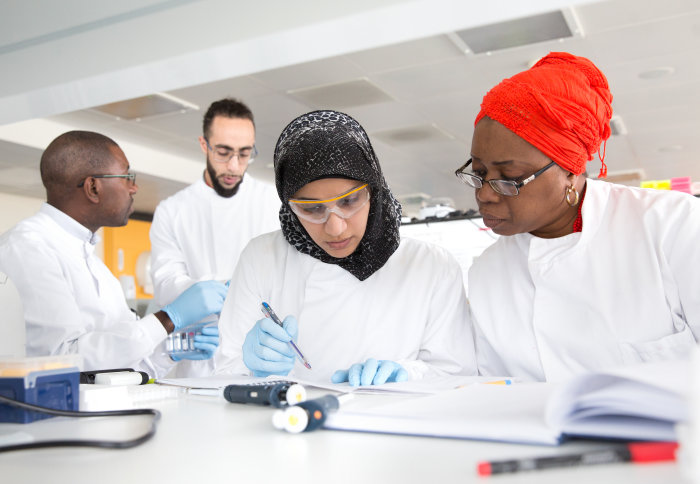How to safeguard clinical trials data in times of pandemic
by Anna Cupani

NHS staff and resources are redeployed to address the Covid-19 pandemic. How can we ensure that this doesn't damage multi-year clinical trials?
In the past couple of weeks Imperial College entirely rearranged its activities. Courses and exams have migrated on line, lab research has been shut down or reconverted to produce hand sanitizer, and to supply equipment to the NHS.
While epidemiologists and statisticians are analysing the current developments of the pandemic to elaborate models that will allow governments and public bodies to make accurate predictions around the evolution of the disease, and to implement responsive policies, the Data Science Institute has also seen a significant shift in the focus of our activities.
Florian Guitton, our Data Centre Operations Manager works closely with the NHS to ensure that patients data is stored safely and securely, is protected from hacking but accessible when needed. Patients’ data management is a critical element of most medical research. Normally, security procedures are in place to ensure that only doctors and researchers can access the data, and only under strict conditions. This often involves multiple user authorising the access. Given the nature of the current Covid-19 pandemic, there is a non-zero chance that multiple users will contract the disease and be unable to perform the required operation to grant access to the data.
“How do you design a safe panic button, so to speak?” one that is not too easily activated for security reasons, but can be used when needed, but a group of authorised people, to recover the data. Florian goes on to explain the importance of maintaining access to this data.
“Just think of longitudinal studies or clinical trials, sometimes we’re talking about multiple years and 100s of millions of pounds invested. How do we make sure that we’re not wasting all that work too?”
This balancing act of ensuring that long term projects, and those that have already been running for years, are still allowed to continue while NHS resources have been allocated elsewhere is another challenging area. “For most clinical trials, doctors must visit the patients in person – explains Mr Guitton – Now that staff is redeployed to tackle the Covid19 emergency, will they still be able to do it? And will these patients, who often are themselves vulnerable because of their medical conditions, be able to travel and see the doctors?”
These new circumstances require a creative approach to guarantee that research continues, that the data collected will not be wasted and that the benefits of successful medical trials will be reaped in due time, all while keeping staff and patients safe under the current circumstance.
“To address these issues, we are developing new mechanisms for safe and accurate reporting from both patients and doctors so that this wealth of data can still be used and provide valuable information to doctors and researchers” – concludes Mr Guitton.
Article text (excluding photos or graphics) © Imperial College London.
Photos and graphics subject to third party copyright used with permission or © Imperial College London.
Reporter
Anna Cupani
Faculty of Engineering